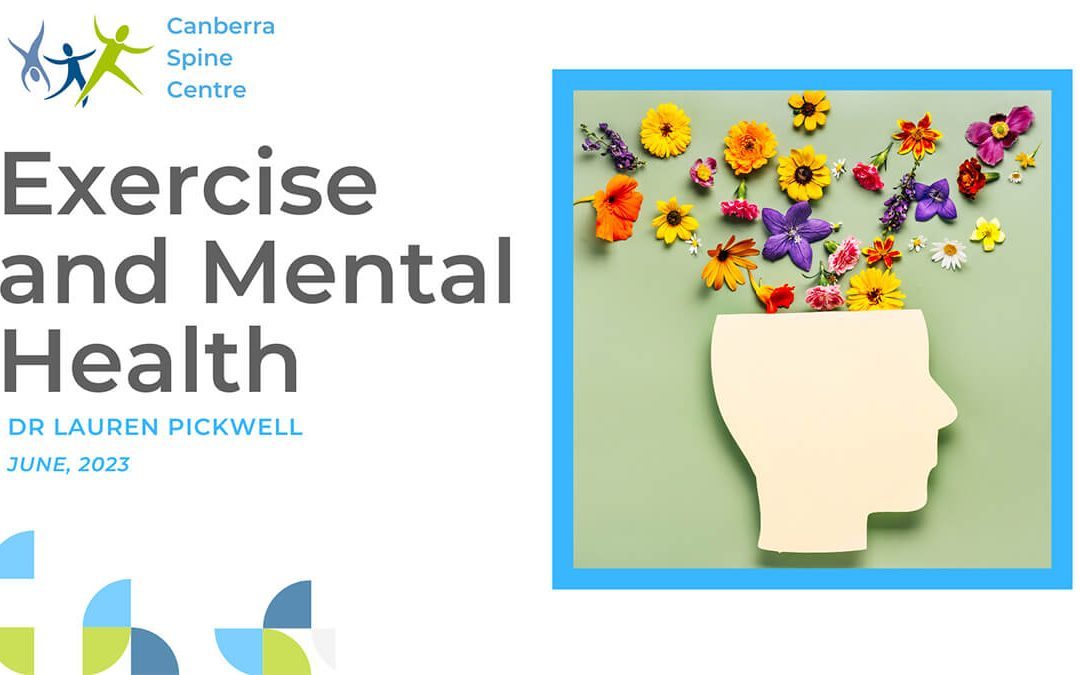
For International Men’s Mental Health Week, let’s discuss how exercise has long been recognized as a powerful tool for enhancing mental health.
Exercise in combination with chiropractic treatments, can unlock a synergistic effect that promotes mental wellness and physical vitality.
In this article, we will explore the connection between exercise and mental health and delve into the role chiropractic care plays in optimizing these benefits.
Why you need to exercise
Physical activity stimulates the release of endorphins, neurotransmitters known as the brain’s “feel-good” chemicals.
These endorphins enhance mood, reduce stress, and combat symptoms of anxiety and depression.
Engaging in regular exercise allows individuals to harness these benefits, experiencing improved mental clarity, elevated mood, and a greater sense of overall happiness.
How Chiropractic care can help
While exercise alone can yield substantial mental health benefits, the integration of chiropractic care can further enhance these effects.
Chiropractic focuses on the relationship between the spine and the nervous system, which controls every function in the body, including mental processes.
Emotional changes
The spine houses the spinal cord, an extension of the central nervous system.
When misalignments occur, they can disrupt the communication between the brain and the body, potentially leading to physical and mental imbalances.
Chiropractic adjustments restore proper alignment, allowing the nervous system to function at its best.
This can result in improved cognitive function, enhanced emotional stability, and a greater capacity for stress management.
Physical Changes
Chiropractic care can address physical manifestations of mental distress, such as muscle tension, headaches, and fatigue.
Chronic stress often leads to muscle tension, which can create discomfort and pain throughout the body.
By alleviating spinal misalignments, chiropractic adjustments can help reduce muscular tension, promoting relaxation and overall physical well-being.
This relief allows individuals to engage in exercise more comfortably, further maximizing the mental health benefits of physical activity.
Chiropractic care also complements exercise by promoting proper posture, balance, and coordination.
When the spine is aligned correctly, the body can move with efficiency and balance, reducing the risk of injuries during exercise.
Maintaining good posture and balance not only optimizes physical performance but also supports mental health.
Research has shown that maintaining an upright posture can boost self-esteem, confidence, and positive mood.
Start Simple!
Incorporating exercise into your daily routine doesn’t have to be complicated or time-consuming.
Here are some simple and effective exercises you can do:
- Brisk Walking
- Stair Climbing
- Bodyweight Exercises
- Dancing
- Yoga or Pilates
- Cycling
- Gardening (Check out Dr Chelsea’s article this month for more details about how gardening can improve mental health!)
Remember to start at a comfortable level for your current fitness level and gradually increase the intensity, duration, or repetitions as your body adapts.
It’s also important to warm up before exercise and cool down afterward to prevent injury and aid in recovery.
To conclude, exercise and chiropractic care are two powerful tools that synergistically contribute to mental health.
While exercise releases endorphins and improves cognitive function, chiropractic care optimizes the nervous system and addresses physical imbalances.
If you or anyone you know is experiencing distress, contact lifeline 13 11 14 or lifeline.org.au. Don’t be afraid to reach out.
If you have any questions or concerns about how chiropractic care can contribute to improved mental health, please call us on (02) 6257 9400.
If you would like some more information about the spine and nervous system and how it relates to your health, please check the other articles on our facebook page https://www.facebook.com/CanberraSpineCentre.
